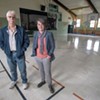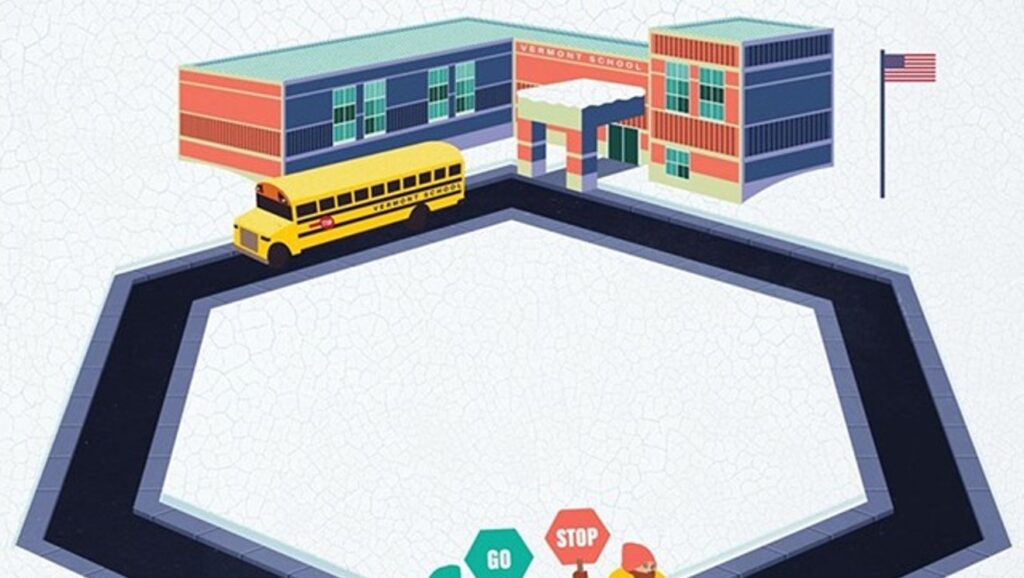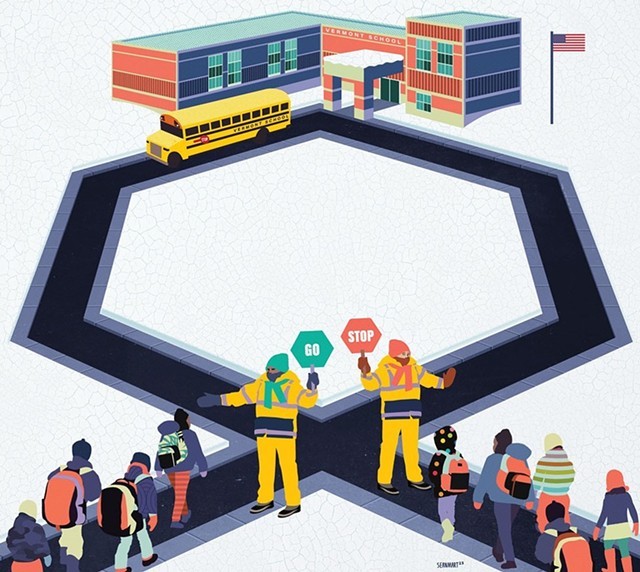Less than a year ago, the Vermont House Education Committee approved a bill that would suspend the state's ambitious and logistically complex school inspection program for toxic chemicals known as PCBs.
At the time, lawmakers argued that the test should be integrated with the state's larger school construction priorities. They were also concerned about moving forward with a program that would burden school operations and potentially cost tens of millions of dollars.
Ultimately, the entire House approved the suspension. However, the Scott administration opposed it, as did some Senate leaders, and the bill ultimately died.
Chemical crossroads: Lawmakers consider pausing Vermont's ambitious, expensive and unique plan to address PCB problem in schools

Chemical crossroads: Lawmakers consider pausing Vermont's ambitious, expensive and unique plan to address PCB problem in schools
Written by Alison Novak
education
But this year, amid soaring school budgets, mounting repair costs and unresolved administrator frustration, the House Education Committee drafted a bill to end the testing program. This time around, some state officials seem to be a little more amenable to that idea.
The state allocated $13.5 million in education funds to remediate PCBs in schools. The proposed bill would stop testing for chemicals if the pot drops to $4 million.
As it stands, the state has already committed $6.5 million to schools that need to improve their PCBs, said Jill Briggs Campbell, director of operations for the Education Department. A separate $16 million has been allocated to Burlington High School, which became the first school in Vermont in 2020 to have high levels of PCBs found. The school has since been demolished and Burlington is building a new school.
The state of Vermont and its schools have filed a lawsuit over PCBs. Will they win?

The state of Vermont and its schools have filed a lawsuit over PCBs. Will they win?
Written by Alison Novak
news
The reason for phasing out the testing program is simple, Rep. Peter Conlon (D-Cornwall) told his colleagues on the Education Committee on Friday. “Why do inspections when there is no money for repairs?”
In testimony this week, Interim Education Secretary Heather Boushey and Matt Chapman, director of waste management and prevention at the state Department of Environmental Conservation, said they were open to the proposal.
However, Chapman made several amendments to the bill. It would task the Consolidated Fiscal Agency with developing recommendations on how to pay for the remaining work needed to complete the inspection, mitigation, and remediation of all Vermont schools that have found PCBs.
As of Jan. 1, 96 of the 324 Vermont schools eligible for PCB testing had completed testing. Of those, 37 percent, or 35 schools, had chemical levels detected that required further action. Even the preliminary steps of testing PCB materials and installing air filters in rooms where chemicals are found can cost tens of thousands of dollars.
Vermont school PCB testing program gets off to a good start

Vermont school PCB testing program gets off to a good start
Written by Alison Novak
education
Natural Resources Secretary Julie Moore said in an interview Friday that the government does not support halting or suspending the PCB testing program. Instead, the government prefers to “tailor testing to available resources”, she said.
Moore pointed to a proposal he shared with lawmakers in January that called for slowing the pace of the testing program and testing an additional 65 schools by June 30, 2025. The proposal also recommends a less aggressive approach to dealing with PCBs. We have become increasingly reliant on air filters, paint, and metal strips to reduce concentrations and block chemical sources. As it stands, the district is required to remove his PCB-containing materials.
Moore said the administration still supports the proposal, noting that “the public health concerns are real and have not changed.”
Moore said he believes $13.5 million in education funds and an additional $3.5 million from the state's Solid Waste Management Fund will be enough to run the PCB program through 2025. .
After that, more than 150 schools will take the exam. Moore said plans have not yet been finalized to address these buildings. She estimates that improving her PCB for all schools will cost her anywhere from $30 million to $70 million.



